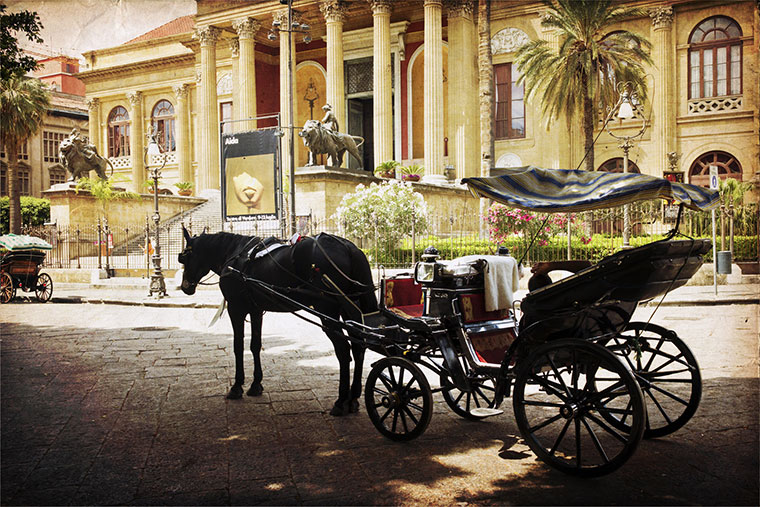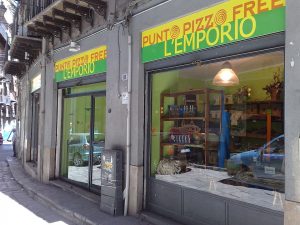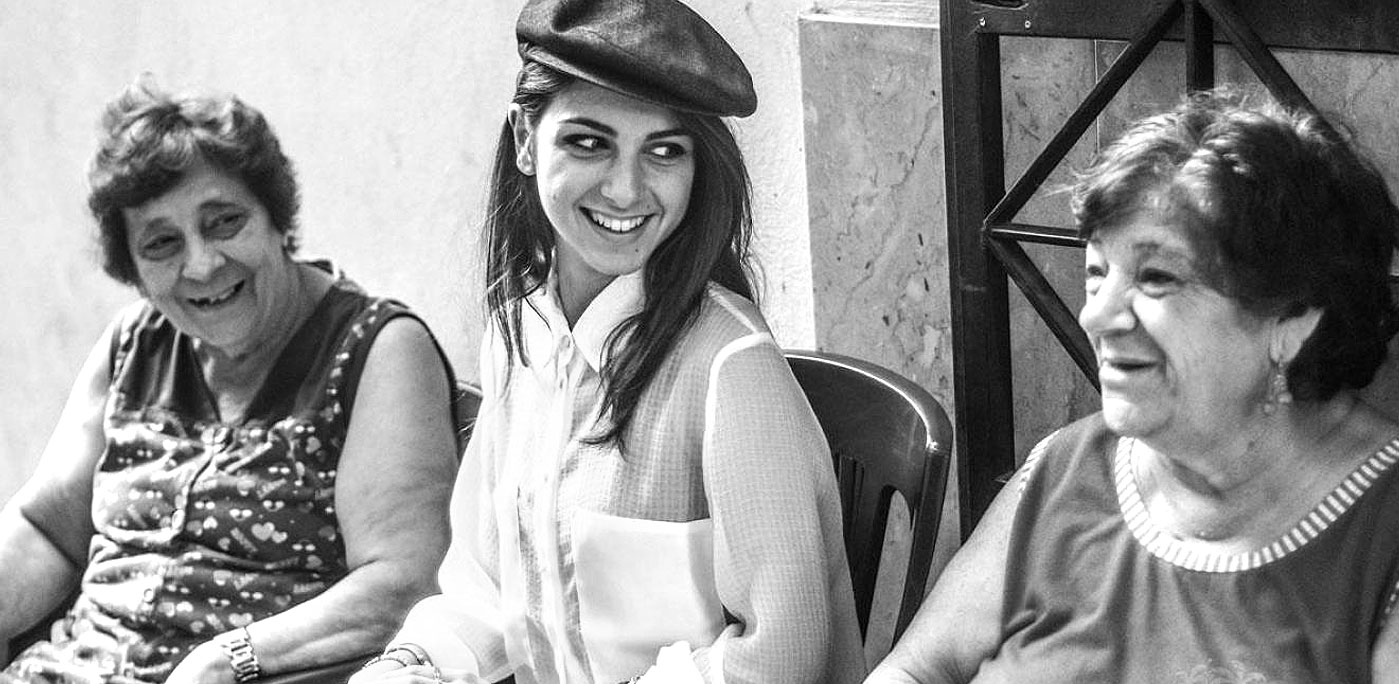In the heart of Sicily, there was once a town called Corleone, the birthplace of a mafia boss of the likes of Bernardo Provenzano; his bloody history, in reality and on screen, has transformed this place into a stereotype of mafia violence that defames the name of this beautiful island.
But fortunately, this land has a second identity: the perception of Sicily has been now changing for a few years, thanks to courageous people who want to clean up their land from the fame of terms such as corruption, crime, or omertà [a code of secrecy].
This is what “Addiopizzo!,” a project that uses tourism to restore the dignity that had once been taken from Sicily by refusing mafia protection, is based on. An open, fluid, dynamic movement that operates from the bottom up, becoming the symbol of a “cultural revolution” against mafia’s ostracism. The initiative arises as critical consumers’ further answer to the “pizzo” [money paid for protection] applied to the tourism industry.
A courageous choice, made by over 700 local economic businesses, that brought about a fundamental change in attitude: a study done in 2007 by SOS Enterprise, an anti-racket association, found that 70% of Sicilian commercial businesses are forced to pay Cosa Nostra [another name for the Sicilian Mafia meaning “Our Thing”] to get protection, creating a multi-millionaire illegal economy financing crime.
Representatives of “Addiopizzo!” explain how, beginning in 2004 in Palermo, a group of people insurged and began to spread the message that “Rebelling against this slavery is risky but necessary: a country fully subjected to this law is a country without dignity.” It was further suggested to involve law enforcement whenever necessary, to show it is possible to stand up for one’s rights and freedom.
Since then, other groups have been formed in Catania and Messina, expanding the initiative even to Calabria and Naples, an answer of beauty to the Hell people must face.

Tours of Corleone and Palermo, for instance, manage to reveal these cities’ hidden beauty, a beauty made of history, art and culture, that shines through ashes.
In Corleone the sacred is one with the profane: known as the town of the 100 churches, its many monasteries and chapels make space also to Falcone and Borsellino Square, honoring the two magistrates killed by the Mafia in 1992.
In recent years, Corleone has also become home to the Museo Anti-Mafia, where several items and photos reconstructing the history of some of the most gruesome Mafia killings, integral part of Sicilian history itself, are kept. Along with it, the museum contains a library and a large legal archive with documents pertaining to the most important Mafia trials of the 1980s, thanks to which hundreds of Mafia bosses and Mafiosi were jailed.
Many of the homes confiscated to the Mafia have been transformed in accommodation structures such as Bed and Breakfast, or assigned to young entrepreneurs working in the food and wine industry. Others have been transformed in holiday homes.
In Palermo, poignant is the presence, in the beautiful park of Villa Garibaldi, of a statue dedicated to Joe Petrosino, a New York City police officer killed by the Mafia in 1909, extraordinary testimony to a century of violence.

Always in Palermo, an “Addiopizzo” member guides tourists around the alleys and streets of its historical centre, following the footprints of Mafia-fighting history. Teatro Massimo, il Mercato del Capo, Piazza della Memoria al Tribunale, Piazza Beati Paoli, the Palermo Cathedral, the Police Headquarters, the Town Hall: every step offers inspiration to reflect upon the Mafia and the civil movement born against it.
Participants to the tours have also the opportunity to meet businessmen and shop owners who said no to pizzo, adhering to the “Pago chi non Paga” (I pay those who don’t pay) ethical consumerism campaign, promoted in the city by the people of “Addiopizzo” in support of all those who rebelled against the Mafia.
Another seminal stop is the Antica Focacceria San Francesco, a historical Palermo restaurant, the owners of which had the courage to report their extortionists.
And we can’t help but cite the curious initiative “La Coppola Storta,” a project filled with important values, twisting and reinventing the coppola, a typical Sicilian hat. The initiative wants to bring new life to the name and diffusion of Sicilian craftsmanship around the world and, more in general, to the image of Sicily itself, through a careful plan of cultural and sustainable merchandising, focused on the production of typically Sicilian products with recycled materials.
“Sicily is rich in creative resources: talented craftsmen, extraordinary designers, excellent graphic artists,” explains Francesca Vannini Parenti, a businesswoman of La Coppola Storta, “and yet there are no businesses willing to produce and launch these talents. This is what is missing. Palermo is still far too removed from the fashion world, there are no incentives, ideas, or calls for young entrepreneurship. In short, there are many creators, but few manufacturers. A virtuous circle must be created.
“It has been necessary to develop a conscience based on values stronger than those we wanted to fight. It has been necessary to work with profound passion to create a new, vital image for the coppola, an image that mirrors its real identity. That image, today, finally conquered the imagination of the general public, recapturing the coppola’s real identity.”
“The coppola storta” has a store in Palermo – in the beautiful via Bara all’Olivella where many “pupari” (makers of Sicilian marionettes called “pupi”) still survive and franchises in Vienna, Turin and other European cities.
Another interesting project, FAIRSUD, has also developed in the past year. FAIRSUD is a non-profit organization intending to enhance the prototype of Sicilian regional experience, especially of the areas of Ragusa, Caltanissetta and Palermo. Crucial for the initiative is the enhancement of an ethical business model that, on one hand, guarantees consumers’ purchasing rights associated with goods or services related to a specific territory; on the other, it contributes to the creation of a new business model, oriented towards the highest respect of workers, environmental and social sustainability and the creation of solidarity networks and non-traditional protection.
Hence, FAIRSUD’s proposal for a Philosophical and Managerial Training School: an itinerant training path, in which non-profit organizations’ best practices – organization, motivation, leadership, reputation, and creativity – contribute to the birth of a new executive class for organizations and associations. This scientific experimentation laboratory will develop the topics already proposed by the Community Studies Center, widening the analysis with the contribution of lecturers from the universities of Palermo and Padua.
The objective? Using Socratic discussion to develop topics such as ethical production organization and to export a non-profit paradigm in the south of Italy, France, Spain Portugal and Greece.
It can be said there is, indeed, a light at the end of the tunnel for Sicily today: “Men pass, ideas remain. Their moral convictions remain and will continue to walk on the legs of other men.” Just as Giovanni Falcone once said.





























